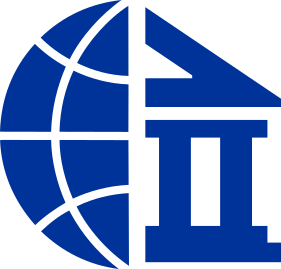International Trade Organization (Kylaris): Difference between revisions
No edit summary |
|||
| Line 30: | Line 30: | ||
Membership in the ITO is open to any country or territory that controls its own {{wp|customs territory}}. This includes all sovereign states as well as autonomous and external territories that maintain their own customs controls and tariff schedules, as well as supranational organizations such as the [[Euclean Community]] that include a {{wp|customs union}}. All EC members, in fact, are dually represented by both their national governments and by the EC as a whole. | Membership in the ITO is open to any country or territory that controls its own {{wp|customs territory}}. This includes all sovereign states as well as autonomous and external territories that maintain their own customs controls and tariff schedules, as well as supranational organizations such as the [[Euclean Community]] that include a {{wp|customs union}}. All EC members, in fact, are dually represented by both their national governments and by the EC as a whole. | ||
Presently, every sovereign nation in [[Kylaris|the world]] is a full member of the organization, as is the non-sovereign territory of [[Jindao]]. | Presently, every sovereign nation in [[Kylaris|the world]] is a full member of the organization, as is the non-sovereign territory of [[Jindao]]. [[Tibernum]] is an observer state not obliged to pursue full membership. | ||
==Principles== | |||
Under ITO rules, member states must in general extend {{wp|most favored nation}} status to all other member states. Nations must not assign quotas or tariffs preferentially to some states and not others, and must not discriminate in the international trade of goods, services, or intellectual property. In theory, this means that all nations must regard each other as equals in international trade due to the universal nature of ITO membership. In practice, the ITO does allow exceptions to this principle in certain circumstances. These include certain limited protectionist measures by developing nations, economic sanctions, favorable terms of trade for autonomous territories, and others. | |||
Another pillar of the ITO's non-discrimination regime is that member states may not regard domestically produced goods in preference to imported ones post-importation. This means that member states are forbidden from using regulations, including those designed to protect health and safety, in bad faith as de-facto barriers to trade. Member states are nevertheless allowed to enact bona fide regulations that are intended to protect human, plant, and animal health and safety, as well as the environment in general. | |||
Member states are also forbidden from engaging in or allowing anti-competitive practices such as {{wp|Dumping (pricing policy)|dumping}} and excessively subsidizing exports. The ITO can, pursuant to an investigation, impose {{wp|countervailing duties}} to remedy such situations. | |||
==Dispute resolution== | |||
{{Template:Kylaris}} | {{Template:Kylaris}} | ||
[[category:International organisations in Kylaris]] | [[category:International organisations in Kylaris]] | ||
Revision as of 21:36, 7 January 2020
 Official logo of the ITO | |
| Formation | 1 January 1995 |
|---|---|
| Purpose | To encourage and regulate international trade |
| Headquarters | Spálgleann, Caldia |
Official language | Estmerish Gaullican |
Director | |
Budget | 209 million Euclo |
Staff | 650 |
| Website | ito |
The International Trade Organization (ITO) is an intergovernmental organization which promotes and regulates international trade. Its primary goal is the multilateral reduction of barriers to trade, especially in the form of quotas and tariffs, and the establishment of uniform rules designed to make global trade free and fair. The ITO officially commenced on 1 January 1995 under the City Agreement signed on 15 April 1994, replacing the World Agreement for Trade (WAT), which commenced in 1938.
The ITO takes major decisions at its International Trade Conference held every two years, at which national ministers of finance meet to determine what actions should be taken to further encourage the development of trade. Day-to-day governance is the responsibility of the Director of the ITO, currently Montecaran politician Dominica Giordàn (since 1 January 2020). She is supported in her work by a secretariat consisting of approximately 650 staff members.
Members
Membership in the ITO is open to any country or territory that controls its own customs territory. This includes all sovereign states as well as autonomous and external territories that maintain their own customs controls and tariff schedules, as well as supranational organizations such as the Euclean Community that include a customs union. All EC members, in fact, are dually represented by both their national governments and by the EC as a whole.
Presently, every sovereign nation in the world is a full member of the organization, as is the non-sovereign territory of Jindao. Tibernum is an observer state not obliged to pursue full membership.
Principles
Under ITO rules, member states must in general extend most favored nation status to all other member states. Nations must not assign quotas or tariffs preferentially to some states and not others, and must not discriminate in the international trade of goods, services, or intellectual property. In theory, this means that all nations must regard each other as equals in international trade due to the universal nature of ITO membership. In practice, the ITO does allow exceptions to this principle in certain circumstances. These include certain limited protectionist measures by developing nations, economic sanctions, favorable terms of trade for autonomous territories, and others.
Another pillar of the ITO's non-discrimination regime is that member states may not regard domestically produced goods in preference to imported ones post-importation. This means that member states are forbidden from using regulations, including those designed to protect health and safety, in bad faith as de-facto barriers to trade. Member states are nevertheless allowed to enact bona fide regulations that are intended to protect human, plant, and animal health and safety, as well as the environment in general.
Member states are also forbidden from engaging in or allowing anti-competitive practices such as dumping and excessively subsidizing exports. The ITO can, pursuant to an investigation, impose countervailing duties to remedy such situations.
